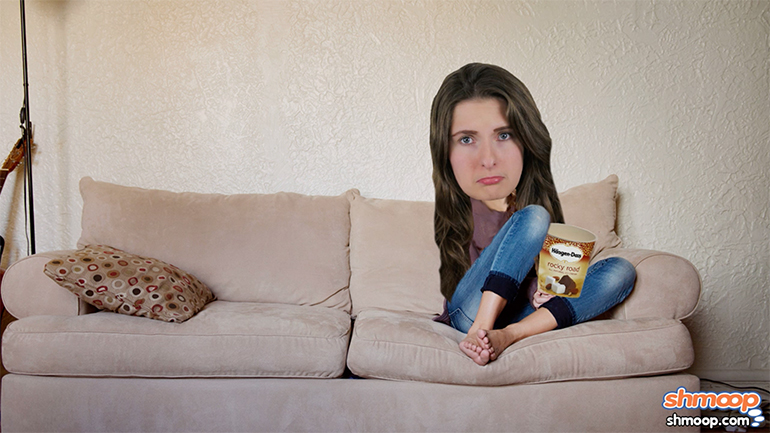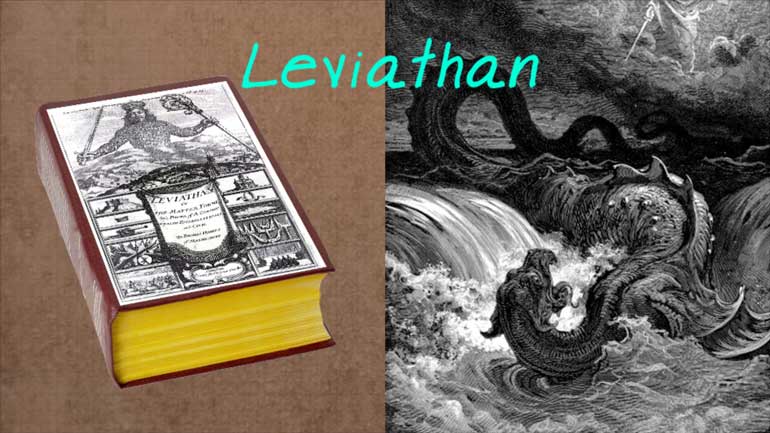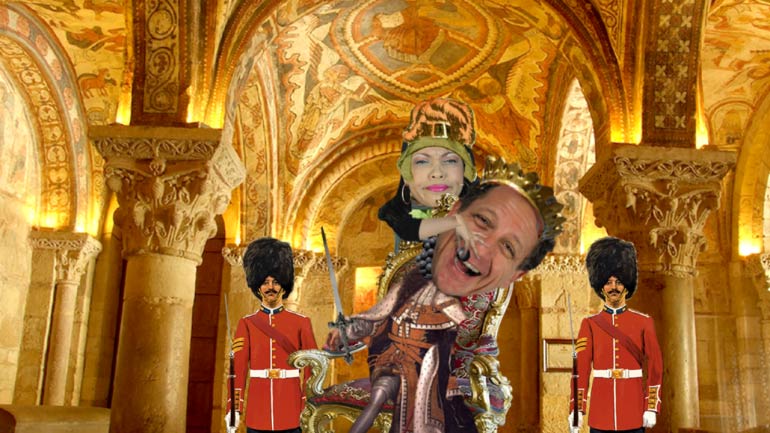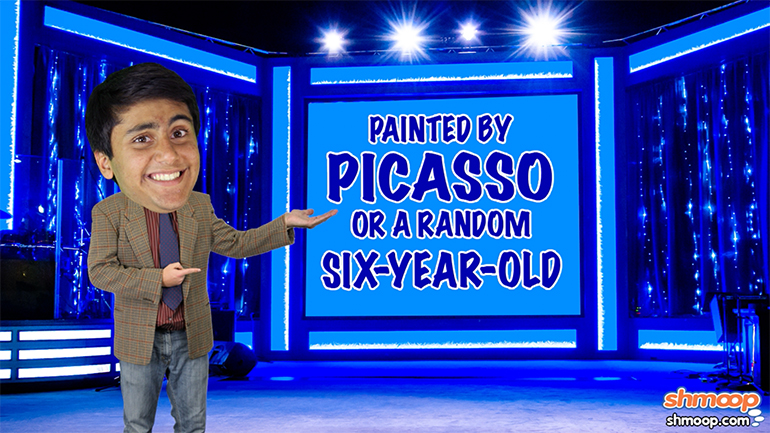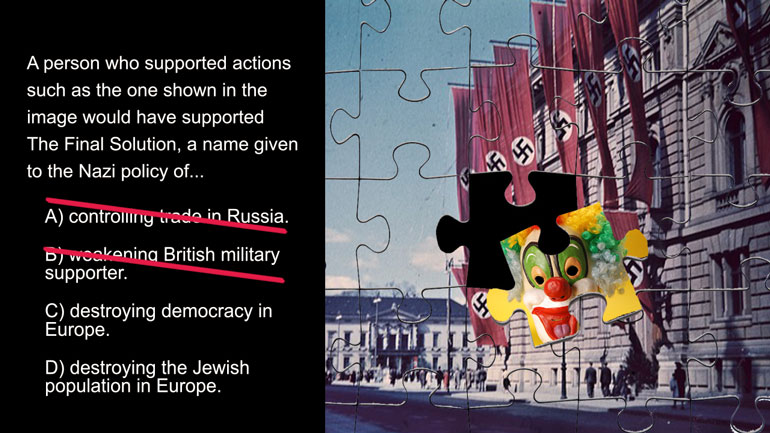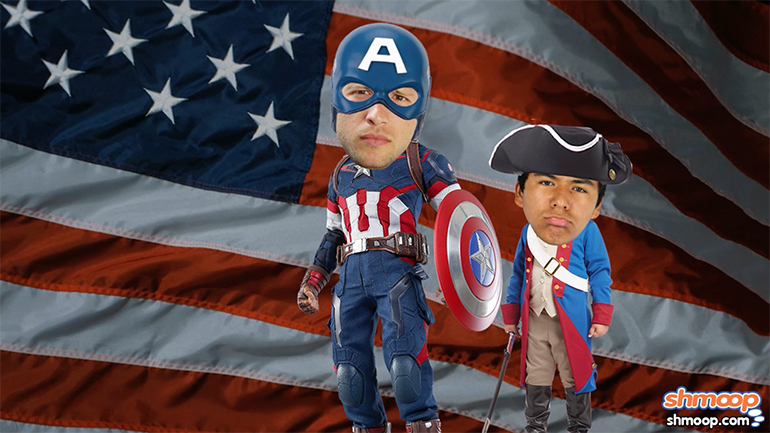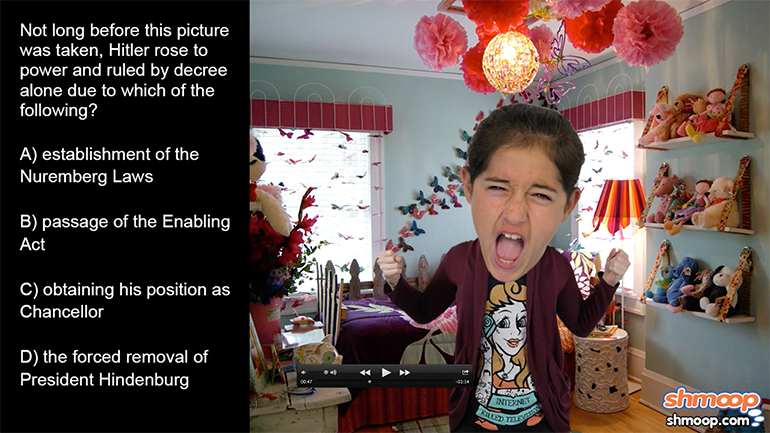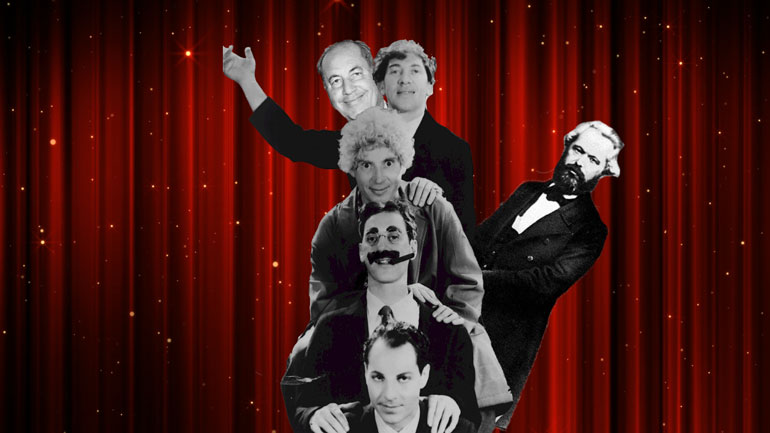ShmoopTube
Where Monty Python meets your 10th grade teacher.
Search Thousands of Shmoop Videos
Contextualization Videos 5 videos
AP European History 2.2 Period 1: 1450-1648. The man portrayed in the image was previously motivated to tack the Ninety-five Theses on the doo...
AP European History 1.2 Period 2: 1648-1815. Which best describes the state of nature as highlighted in Leviathan by Thomas Hobbes?
We know how much you hate rules of any kind, but it's time to consider what effect the absolute rule of European monarchs had on their society. The...
AP European History 1.2 Period 2: 1648-1815 35 Views
Share It!
Description:
AP European History 1.2 Period 2: 1648-1815. Which best describes the state of nature as highlighted in Leviathan by Thomas Hobbes?
Transcript
- 00:03
Here's your shmoop du jour brought to
- 00:05
you by leviathan a term that could describe Hobbes most famous book or a [Leviathan book]
- 00:09
gigantic monstrous sea creature take a look at this image right there Leviathan
- 00:14
alright here's the question which best describes the
- 00:17
state of nature as highlighted in Leviathan by Thomas Hobbes and here are your
Full Transcript
- 00:21
potential answers..... well you know how when someone sees a [Bird crossing the road]
- 00:27
person rescue a duckling from oncoming traffic give an underprivileged child a
- 00:32
new toy or donate their entire paycheck to charity they'll say faith in
- 00:37
humanity restored right well Hobbes must have seen flattened ducklings, some [Duckling ran over by car and child being robbed]
- 00:42
children getting robbed and a bunch of charities go bankrupt because his entire
- 00:46
outlook on life seems to be faith in humanity destroyed.... Hobbes generally
- 00:51
didn't think too highly of humanity but which of these best describes his
- 00:55
outlook on the state of nature in his book [Person using magnifying glass to inspect answer choices]
- 00:58
well sure isn't A - That's right, Hobbes thought that humanity was so bad that
- 01:01
even God wasn't good enough to save us similarly he thought that the only way [Men firing guns]
- 01:05
to help control the riving mess that is humanity was to have a supreme authority
- 01:09
tell us how to act making C an incorrect answer in other words we're
- 01:14
all bratty kids desperately in need of a stern nanny.. [Kids bullying a boy on a bus]
- 01:16
where is Mary Poppins when you need her? perhaps some of that whole faith in
- 01:20
humanity destroyed thing came from Hobbes experience of the English Civil [Soldiers lying on the ground and explosion occurs]
- 01:25
War which was proof enough for him that the Commonwealth was divided not
- 01:29
United meaning D won't fit either ultimately Hobbes believed that we're
- 01:33
all selfish little jerks who will look out for ourselves before anyone else and [Man runs away from young boy]
- 01:37
that everything we do is for our own self-interest so sorry Harry but we're
- 01:41
basically all Slytherins, bad news for Gryffindor's
- 01:44
but looks like B is the correct answer of course the one nice thing about this
- 01:48
sentiment is that Hobbes ultimately believe that everyone is equal [Man holding equality for all sign]
- 01:52
hey that's pretty nice equally bad we're all equally terrible greedy selfish
- 01:56
people...On second thought don't go to Hobbes for a pep talk.
Related Videos
AP European History Period 1: 1450-1648 Drill 2, Problem 1. As a result of the meeting in the image, which of the following occurred?
AP European History Period 3: 1815-1914 Drill 2, Period 1, Les Demoiselles d'Avignon represented the beginning of which of the following art m...
AP European History Period 3: 1815-1914 Drill 2, Problem 4. Paintings like the one depicted above were a direct reflection of what?
AP European History 1.2 Period 4: 1914-Present Not long before this picture was taken, Hitler rose to power and ruled by decree alone due to which...
AP European History 1.4 Period 3: 1815-1914. As evidenced through the passage above, Karl Marx was a passionate leader and is considered the father...
